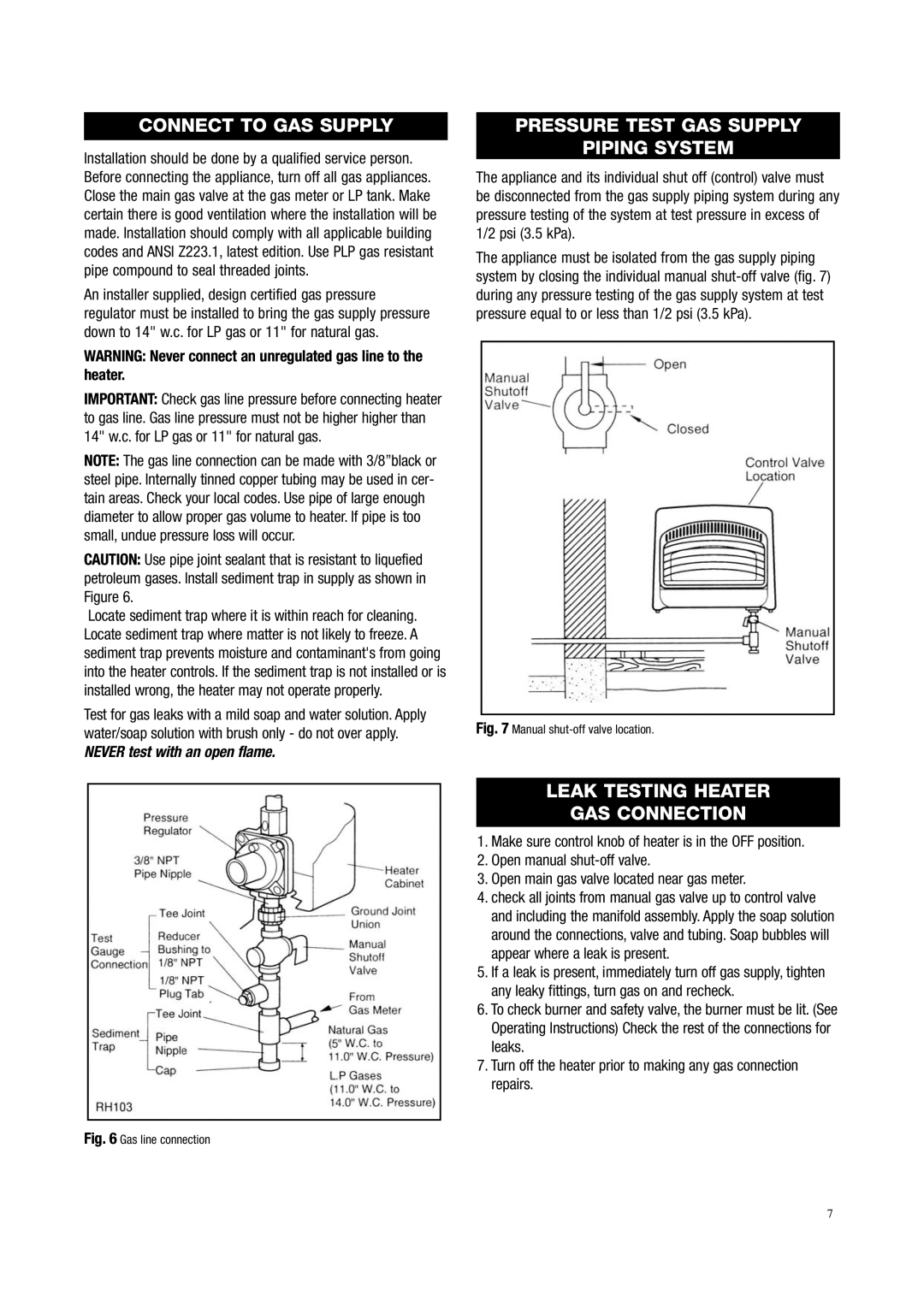
CONNECT TO GAS SUPPLY
Installation should be done by a qualified service person. Before connecting the appliance, turn off all gas appliances. Close the main gas valve at the gas meter or LP tank. Make certain there is good ventilation where the installation will be made. Installation should comply with all applicable building codes and ANSI Z223.1, latest edition. Use PLP gas resistant pipe compound to seal threaded joints.
An installer supplied, design certified gas pressure regulator must be installed to bring the gas supply pressure down to 14" w.c. for LP gas or 11" for natural gas.
WARNING: Never connect an unregulated gas line to the heater.
IMPORTANT: Check gas line pressure before connecting heater to gas line. Gas line pressure must not be higher higher than 14" w.c. for LP gas or 11" for natural gas.
NOTE: The gas line connection can be made with 3/8”black or steel pipe. Internally tinned copper tubing may be used in cer- tain areas. Check your local codes. Use pipe of large enough diameter to allow proper gas volume to heater. If pipe is too small, undue pressure loss will occur.
CAUTION: Use pipe joint sealant that is resistant to liquefied petroleum gases. Install sediment trap in supply as shown in Figure 6.
Locate sediment trap where it is within reach for cleaning. Locate sediment trap where matter is not likely to freeze. A sediment trap prevents moisture and contaminant's from going into the heater controls. If the sediment trap is not installed or is installed wrong, the heater may not operate properly.
Test for gas leaks with a mild soap and water solution. Apply water/soap solution with brush only - do not over apply.
NEVER test with an open flame.
PRESSURE TEST GAS SUPPLY
PIPING SYSTEM
The appliance and its individual shut off (control) valve must be disconnected from the gas supply piping system during any pressure testing of the system at test pressure in excess of 1/2 psi (3.5 kPa).
The appliance must be isolated from the gas supply piping system by closing the individual manual
Fig. 7 Manual shut-off valve location.
LEAK TESTING HEATER
GAS CONNECTION
1. Make sure control knob of heater is in the OFF position.
2. Open manual
3. Open main gas valve located near gas meter.
4. check all joints from manual gas valve up to control valve and including the manifold assembly. Apply the soap solution around the connections, valve and tubing. Soap bubbles will appear where a leak is present.
5. If a leak is present, immediately turn off gas supply, tighten any leaky fittings, turn gas on and recheck.
6. To check burner and safety valve, the burner must be lit. (See Operating Instructions) Check the rest of the connections for leaks.
7. Turn off the heater prior to making any gas connection repairs.
Fig. 6 Gas line connection
7
